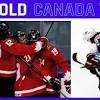Phillies and Astros Tied in Ninth Inning in World Series Game 1: Live Updates


Oct. 28, 2022, 7:40 p.m. ET
Oct. 28, 2022, 7:40 p.m. ETThe night before the Phillies began this most improbable of playoff joy rides, the Philadelphia-sports-fan-in-chief, President Biden, cautioned that the war in Ukraine could devolve into a nuclear “Armageddon.”
Now, a cynic (or, a Philadelphia sports fan) might theorize that these two developments are cosmically linked — as in, of course the apocalypse is coming just as the Phillies return to the postseason. But as disorienting as their success has been, the Phillies deserve as much blame for any pending doom as for the world’s cratering economy.
Which is to say, none, but that’s worth restating considering the bizarre coincidence excavated by the folks at the financial website Morning Brew and revealed on Sept. 21, during the early stages of the Phillies’ game that night against Toronto. Over the last 100 years, citing the Athletics’ victories in 1929 and 1930 and the Phillies’ championships in 1980 and 2008, it noted that every World Series win by a Philadelphia-based baseball team has coincided with a financial crisis.
As samples go, four titles across one century evoke the approximate size of José Altuve’s strike zone. And besides, at the time of Morning Brew’s observation, the Phillies had lost five consecutive games, auguring an 11th straight postseason — let alone World Series — without them.
Then they clinched a wild-card berth in Game No. 160, and they kept winning and winning and winning, inviting the superstitious to posit that maybe, just maybe, there might be a connection, and that fans of prosperity would be wise to root, root, root for Houston in this series.
“No, sorry,” said Jesús Fernández-Villaverde, an economist at the University of Pennsylvania, with a laugh. “When things are rare, it is very easy to find these spurious correlations, and it just happens to be the case that, for whatever odd reason, the Phillies seem to be involved.”
There are plenty of bogus correlations between random variables and world events, not least how, for decades, the outcome of the Washington football team's final home game before a presidential election would determine which party won the White House. As a student at Harvard Law School, Tyler Vigen graphed all sorts of these entertainingly spurious correlations, such as the number of people who drowned by falling into a pool correlating with the films Nicolas Cage appeared in.
Much like baseball teams (and, perhaps, Cage’s acting career), financial markets cycle through buoyant and fallow periods, and recessions tend to arise, Fernández-Villaverde said, every eight to 10 years. Although recessions are not classified as such until they have passed, Fernández-Villaverde said it is global uncertainty and the Federal Reserve System’s attempts to control inflation — and not, say, Bryce Harper’s postseason brilliance — that have increased the likelihood of there being one.
So, to recap, regardless of how the series unfolds — whether the Phillies win their first championship since 2008 or the Astros take their second in six seasons — the economy will almost certainly continue to spiral. Not ideal, but hey, the news, as always, could be worse.


 United States
United States Argentina
Argentina  Australia
Australia  Austria
Austria  Brazil
Brazil  Canada
Canada  Chile
Chile  Czechia
Czechia  France
France  Germany
Germany  Greece
Greece  Italy
Italy  Mexico
Mexico  New Zealand
New Zealand  Nigeria
Nigeria  Norway
Norway  Poland
Poland  Portugal
Portugal  Sweden
Sweden  Switzerland
Switzerland  United Kingdom
United Kingdom 
























